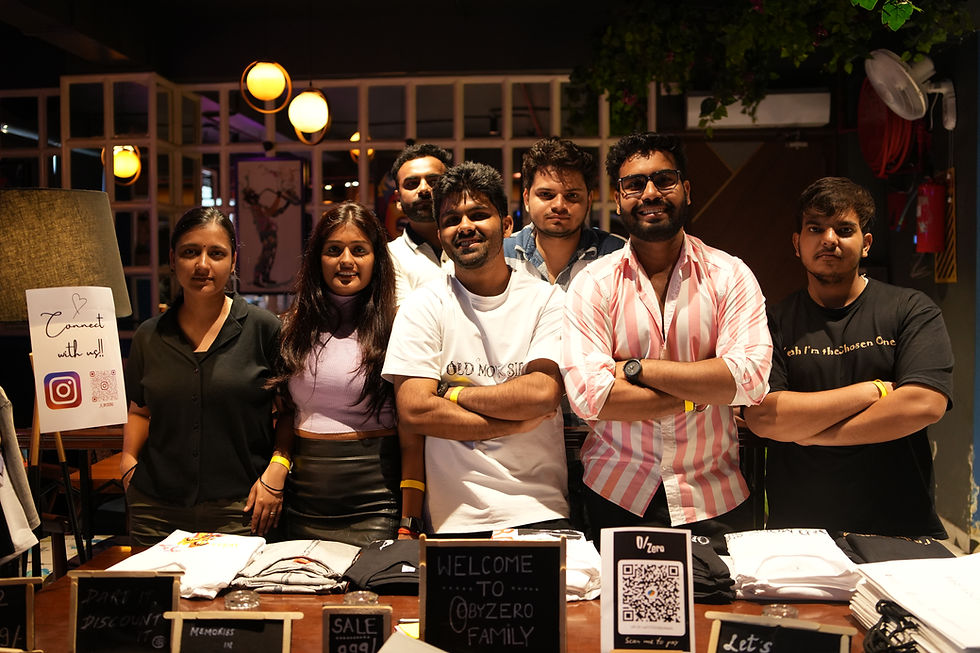How Creative Empowerment Drives Event Success
- DHE Studio
- Oct 9, 2025
- 4 min read
In the fast-paced world of event planning, standing out requires more than just logistics and schedules. It demands innovation, originality, and the ability to inspire everyone involved. Creative empowerment is the secret ingredient that transforms ordinary events into unforgettable experiences. By fostering creativity among teams and participants, event organizers can unlock new levels of engagement and success.
The Role of Creative Empowerment in Achieving Creative Event Success
Creative event success is not just about flawless execution; it’s about creating moments that resonate deeply with attendees. When teams feel empowered to think outside the box, they bring fresh ideas that elevate the event’s atmosphere and impact. This empowerment encourages collaboration, risk-taking, and problem-solving, which are essential for overcoming challenges and adapting to unexpected changes.
For example, a music festival that encourages its staff to experiment with unique stage designs or interactive installations can create a more immersive experience. Similarly, a corporate conference that invites speakers to co-create sessions with attendees can foster a more dynamic and engaging environment.
Key benefits of creative empowerment in events include:
Increased innovation and originality
Enhanced team motivation and ownership
Better attendee engagement and satisfaction
Flexibility to adapt and improve in real-time

What is Creative Empowerment?
Creative empowerment is the process of giving individuals or teams the freedom, resources, and confidence to express their ideas and take initiative. It involves creating an environment where creativity is valued and supported, allowing people to experiment without fear of failure.
In the context of events, this means encouraging everyone from planners to vendors and volunteers to contribute ideas and solutions. It also means providing the tools and space needed to bring those ideas to life. Empowerment can be fostered through open communication, collaborative decision-making, and recognition of creative efforts.
For instance, an event organizer might hold brainstorming sessions where all team members can pitch ideas, or implement a feedback system that rewards innovative suggestions. This approach not only improves the event but also builds a culture of trust and enthusiasm.

Practical Strategies to Foster Creative Empowerment in Events
To harness the power of creative empowerment and events, organizers can adopt several practical strategies:
Encourage Open Communication
Create channels where team members feel safe sharing ideas and feedback. Use tools like Slack, Trello, or regular meetings to keep the dialogue flowing.
Provide Resources and Training
Equip your team with creative tools and skills. Workshops on design thinking, storytelling, or digital tools can boost confidence and capability.
Delegate Authority
Allow team members to make decisions within their areas of expertise. This autonomy fosters ownership and motivates creative problem-solving.
Celebrate Creativity
Recognize and reward innovative ideas publicly. This can be through shout-outs, awards, or showcasing creative work during the event.
Create Collaborative Spaces
Design physical or virtual spaces that inspire creativity, such as lounges with mood boards, idea walls, or brainstorming corners.
Embrace Flexibility
Be open to adapting plans based on creative input. Flexibility encourages experimentation and continuous improvement.
By implementing these strategies, event teams can unlock their full creative potential, leading to more memorable and impactful events.

Real-World Examples of Creative Empowerment Driving Event Success
Several successful events demonstrate how creative empowerment can lead to outstanding results:
TED Conferences: TED encourages speakers and organizers to innovate in presentation styles and event formats. This empowerment has made TED Talks a global phenomenon known for creativity and inspiration.
Burning Man Festival: This event thrives on participant creativity, with attendees building art installations and performances. The festival’s culture of empowerment creates a unique, immersive experience every year.
Corporate Innovation Summits: Companies like Google and Apple empower employees to lead sessions and workshops, fostering a culture of creativity that spills over into their events.
These examples show that when people are empowered to contribute creatively, events become more dynamic, engaging, and successful.
How to Measure the Impact of Creative Empowerment on Event Success
Measuring the success of creative empowerment can be challenging but essential for continuous improvement. Here are some ways to assess its impact:
Attendee Feedback: Use surveys and social media to gather insights on how attendees perceive the event’s creativity and engagement.
Team Satisfaction: Conduct internal surveys to understand how empowered team members feel and how it affects their performance.
Innovation Metrics: Track the number of new ideas implemented, creative solutions to problems, or unique event features introduced.
Engagement Levels: Monitor participation rates in interactive sessions, workshops, or creative activities during the event.
Business Outcomes: Evaluate how creative empowerment contributes to achieving event goals such as brand awareness, lead generation, or community building.
By analyzing these metrics, organizers can refine their approach to creative empowerment and enhance future events.
Creative empowerment is a powerful driver of creative event success. By fostering an environment where ideas flourish and individuals feel valued, event organizers can create experiences that captivate and inspire. For more insights on how to integrate creative empowerment into your events, explore creative empowerment and events.
Embracing creativity not only elevates the event itself but also builds stronger teams and lasting connections with attendees. The future of event planning lies in empowering creativity at every level.



Comments